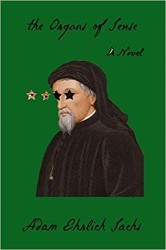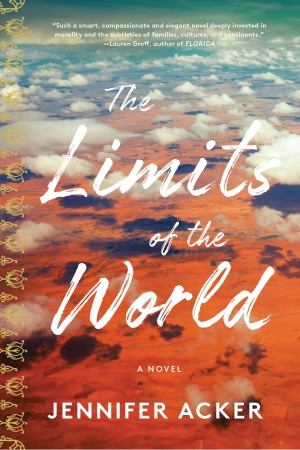The Nobel Prize for Literature was awarded to Olga Tokarczyk in 2018 for “a narrative imagination that with encyclopedic passion represents the crossing of boundaries as a form of life.” That’s a perfect description of The Books of Jacob, a masterpiece of storytelling published in Polish in 2014, now finally available in English.
This is a novel about the historical figure Jacob Frank, an eighteenth-century Jew who declared himself to be the messiah. He wasn’t the first to make that claim: a century before, Shabbetai Zvi raised the hopes of Jews across Europe with his messianic claims, until he converted to Islam in 1666. When Yankiele Leybowicz (as Jacob was originally known) declared that he was the reincarnation of Shabbetai, there were still Sabbatean communities ready to embrace him nearly a century later.
Jacob Frank’s personal magnetism was as influential as his ideas, and not just intellectually. Like Shabbetai Zvi, he rejected many Biblical prohibitions, including incest. Jacob encouraged “equality” by insisting that everyone must share everything, including their spouses, and he created rituals involving nudity. In Tokarczyk’s telling, he himself becomes intimate with devotees of both sexes who welcome his attention.
This book, however, is much more than a retelling of real events. As in any great novel, the true appeal lies with the people. Tokarczyk has brilliantly populated the story with literally dozens of fully realized, complex characters — all of them actual, historical figures — who inhabit an elaborately detailed world. A bookish priest, Fr. Benedykt Chmielowski, believes that the knowledge of many cultures should be shared, including Jewish texts. Katarzyna Kossakowska runs her husband’s estate and enjoys gossiping with her elite friends. There’s also her cousin, the multilingual traveler Moliwda; the doctor Asher Rubin; the busy, unsettled Elisha Shorr, who has mystical leanings and uses amulets; Reb Mordke, a disciple of the kabbalist rabbi Jonathan Eybeschütz; and Yente, Jacob Frank’s grandmother, who lies suspended between life and death and can see everywhere and everything. There are many, many more.
Tokarczyk understands her characters so well that she can imagine the furniture and decorations in their homes, the clothing that reveals their personalities. She can smell the evening breeze, tinged with odors of fruit and the forest. When Jacob Frank is imprisoned in a fortress, she knows each of his captors, their quirks and their weaknesses. She knows how the Catholic prelates will talk with one another, and how they’ll speak to Jews. What’s more, though she is Christian, she commands a knowledge of Judaism that might intimidate some Jewish readers. Tokarczyk accurately writes in passing about Jacob Emden, the Shem Hamephorash, gematria, and the difference between pshat, remez, drash, and sod, to cite just a few.
As much as it grapples with ideas, The Books of Jacob is a true multigenerational epic, full of so much drama and personality and emotion that it would make a great series on Netflix. It’s a constant pleasure to read in its superbly idiomatic English version by Jennifer Croft, who is so scrupulous a translator that the poetry is even rendered in rhyme and meter. Its length may be intimidating, but it richly repays the investment of time. It is destined to be an enduring classic.
Bob Goldfarb is President Emeritus of Jewish Creativity International.





